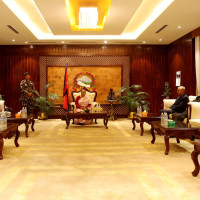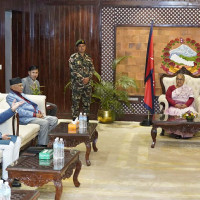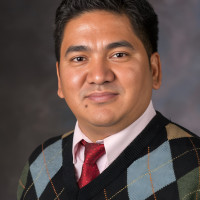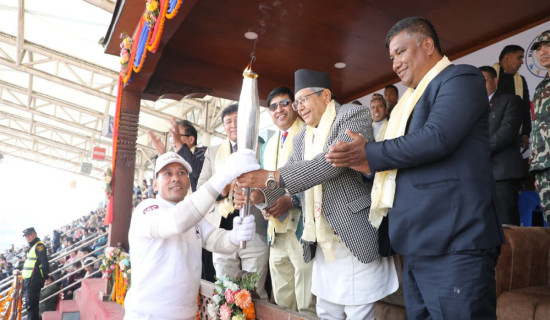- Sunday, 28 December 2025
HPV vaccine for young girls markedly lowers risk of cervical cancer
BY AJITA RIJAL
Kathmandu, Jan. 14: Human papillomavirus (HPV) is a viral infection causing most cervical cancer. According to the health experts, early screening tests and widespread immunisation with the HPV vaccine could reduce the impact of cervical cancer and other cancers caused by the HPV.
As per the World Health Organisation (WHO), HPV is responsible for more than 70 per cent cervical cancer cases in women.
Dr. Kritipal Subedi, consultant gynecologist, said that HPV is present in the cervix. When women engage in sexual activity, they are at risk of contracting the virus.
Cervical cancer occurs in 20 per cent of women suffering from cancer in Nepal. According to the data released by GLOBOCAN 2020, out of 20,805 new cancer patients in Nepal, 2,244 women had cervical cancer. More than 1,000 women die every year due to cervical cancer.
It is ideal for girls to receive the vaccine before they are sexually active and are exposed to HPV, suggested Dr. Subedi.
According to Dr. Arun Shahi, consultant medical oncologist, 9 to 15 years old girls should receive vaccination on the two-dose schedule and teens and young adults, who begin the vaccine series later, at age 15 through 26, should receive three doses of the vaccine.
As the vaccine is not available on the government effort, some private hospitals are providing the HPV jabs at the cost of Rs. 15,000 per dose, said Dr. Shahi.
According to the world data, the risk of cervical cancer is mainly found in women in the age group of 20 to 30 and 40 to 50 years. But in Nepal, it has been found that the risk of cervical cancer is higher in women in the age group of 40 to 60 years.
Talking to The Rising Nepal, Dr. Bibek Kumar Lal, director at the Family Welfare Division under the Ministry of Health and Population (MoHP), said that the division will vaccinate the target group against HPV with the arrival of vaccine. The ministry is in the process of securing the HPV vaccines at the earliest, he added.
Nepal has also requested the Global Alliance for Vaccine and Immunisation (GAVI) to provide the vaccine for free so that the government could include it in the regular vaccination drive list, said Dr. Lal.
The concerned authorities should convey the message about the efficacy of HPV vaccine from the central level to the local level, suggested the health experts.
“HPV vaccine can save lives of hundreds of women every year. But still many Nepalis are unaware of it,” said Dr. Shahi and stressed for the need of massive awareness.
Initiatives should be taken from the government level to reduce cervical cancer by vaccinating young girls. Cervical cancer can be avoided to a large extent if parents understand the effectiveness of the vaccine against HPV and inoculate their girls at the appropriate time, stressed Dr. Shahi.







-square-thumb.jpg)









